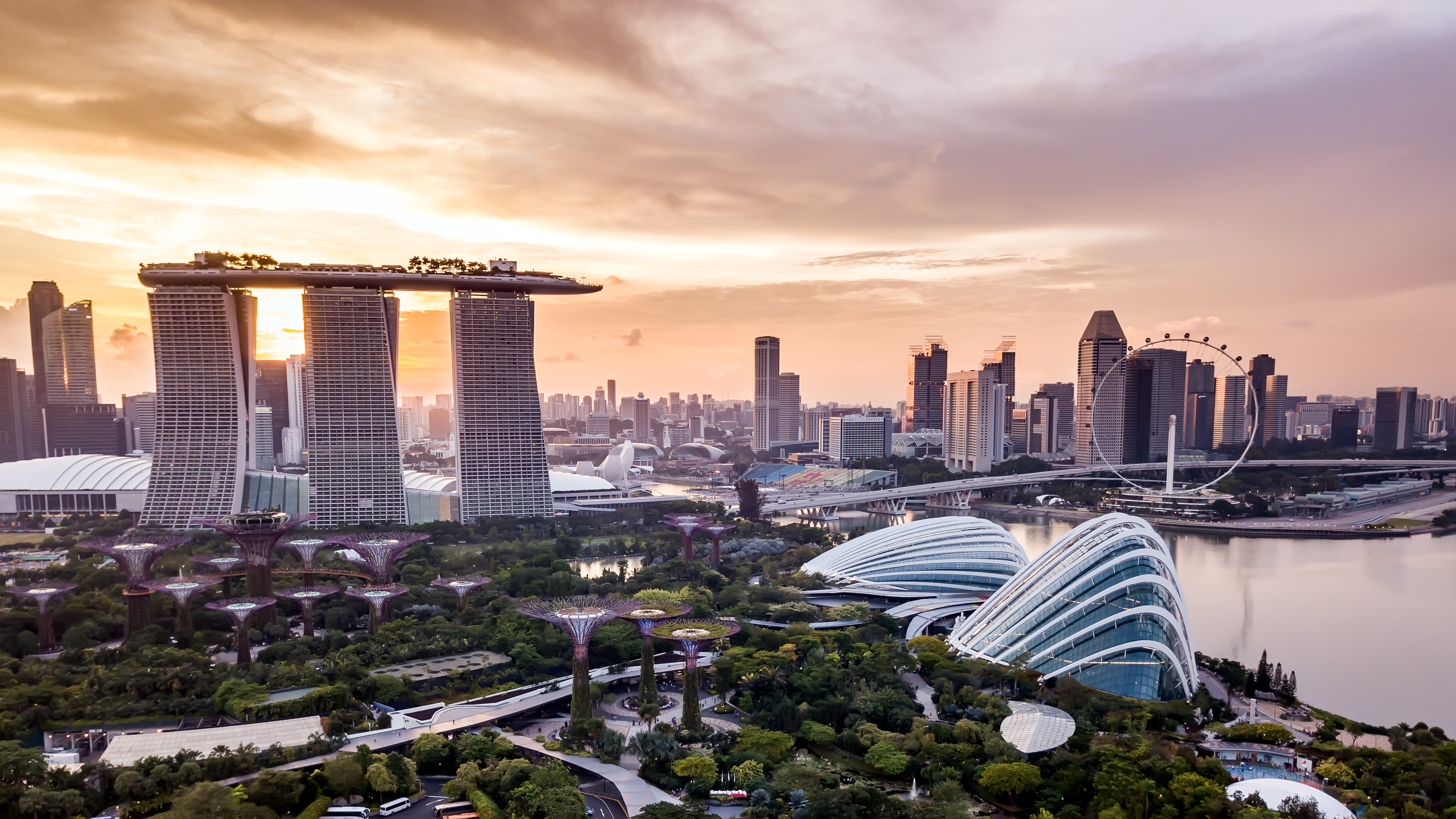
IS IT SAFE TO TRAVEL TO SINGAPORE?
You may know Singapore one of two ways: as the setting for the film Crazy Rich Asians, or as a country that enforces its laws very strictly. Maybe you know it as both, and the resulting contradiction may also make you wonder whether it’s safe to travel to Singapore.
For most travelers, the answer is simple: Singapore is absolutely a safe place to visit.
Get to know Singapore
First, what is Singapore exactly – a country or a city?
The answer to that question is yes. Singapore is a country and a city.
It’s a largely urban city-state located on the tip of the Malay Peninsula, a long strip of land that extends south and west of Thailand.
Singapore is extremely close to Indonesia, though it has more in common with Malaysia. Both were British protectorates, and as such retain vestiges of British influence. This is a boon for American travelers, since it means that many Singaporeans speak excellent English.
Singapore’s location also means it’s definitely tropical. You’ll need to dress as you would if you were visiting Thailand, Vietnam, Indonesia, or any other country in Southeast Asia, and mosquito repellent is a must.
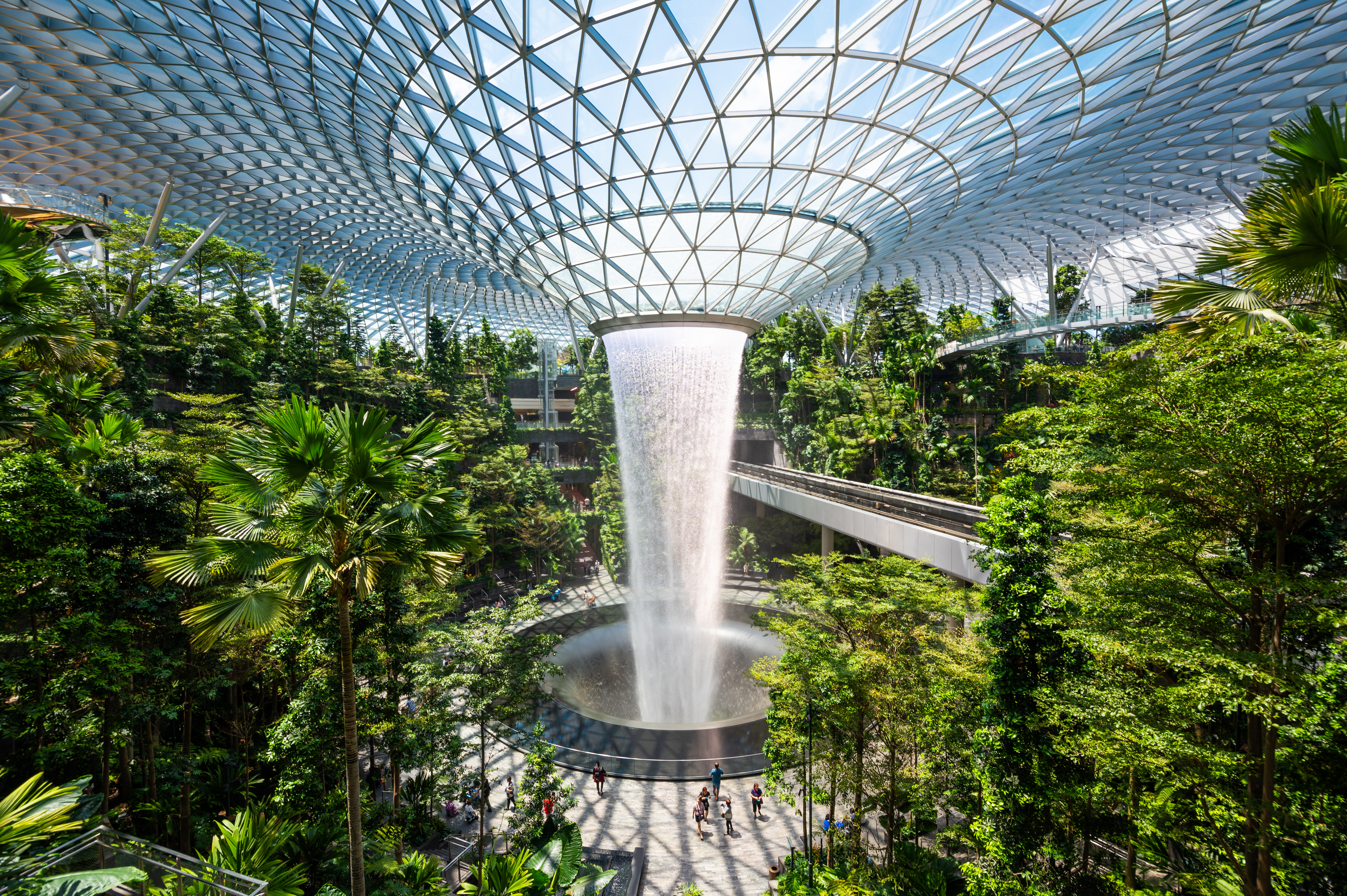
Singapore as a destination
To return to the lede, have you seen Crazy Rich Asians? Most of it was shot in Singapore, and gives you a good idea of the city-state’s attractions.
Start with the airport
First, Changi Airport is amazing. It’s the world’s best by acclimation. Singaporeans go to the airport to shop and hang out, even if they’ve never flown out of Changi in their lives.
If you think it’s damning with faint praise to say that one of the best things about Singapore is its airport, you need to recalibrate what an airport can be.
Travel + Leisure has your complete guide (can you imagine a complete guide to O’Hare?), but Changi has:
- The world’s largest indoor waterfall
- Tropical gardens
- A sunflower garden
- A cacti garden
- The world’s first airport butterfly garden
- Ever-changing light installations
- Mesmerizing modern art
- A dinosaur park (!)
- A food hall
- A movie theater
- A ropes course
- A swimming pool
- More than 300 boutiques and flagship stores
Now do you understand why your first stop in Singapore should be your first stop in Singapore? Changi is special.
Food: the hawker centers
If you remember the scene from Crazy Rich Asians where everyone buys street food, that takes place in a hawker center.
A hawker center basically takes street food and moves it indoors into a more controlled environment. The tastes and the adventure are the same; it’s only the risk of disease that goes away.
As Vogue’s “Crazy Rich Asians’ Guide to Singapore” points out, the movie scene was filmed in the Newton Food Centre, which is just one of many hawker centers around Singapore.
ForeverVacation recommends the chili crab, laksa and satay, but honestly, just look for the long lines, try a little of everything and you’ll eat like royalty.
Outside of the hawker centers, high-end dining options are plentiful – and delicious.
If you love to eat, Singapore gives you lots of options … and lots of places to explore.
Other crazy attractions
Singapore boasts the world’s second-tallest Ferris wheel, the world’s highest and largest infinity pool (not for the faint of heart or scared of heights) and incredible shopping.
If you want to tick off scenes from the movie, be sure to stop at the Gardens by the Bay, a 250-acre park with massive lighted trees and two domed conservatories. It was the site of the movie’s wedding reception.
Don’t let its small size fool you: There’s lots to see and do in Singapore.
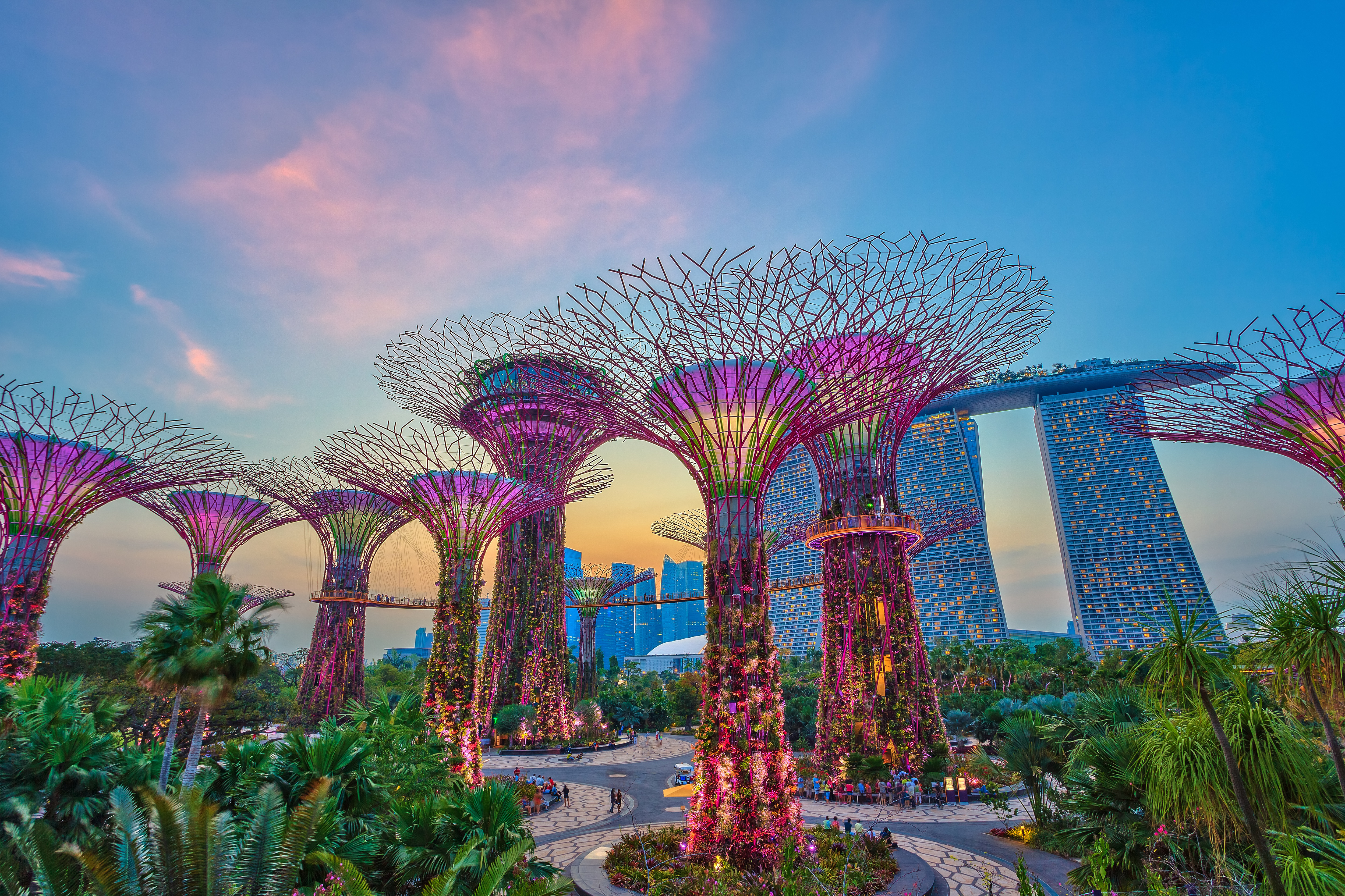
Singapore as a safe destination: the numbers
If you believe destination safety can be reflected in numbers, all the numbers tilt in favor of Singapore.
For instance:
- 1: Singapore has a level-one (“exercise normal precautions”) rating from the State Department.
- 5: Singapore was rated as the fifth-most-peaceable country in the world according to the Global Peace Index, published by Vision of Humanity.
- 7: Singapore was named as the seventh-safest country in the 2024 Global Residence Index.
- 8: Singapore was named the world’s eighth-safest city on Berkshire Hathaway Travel Protection’s latest ranking of the world's safest cities. It’s been a perennial top-10 finisher since it first appeared in our rankings.
- 23: Singapore ranked as the 23rd-safest city in the world out of the 311 cities evaluated by Numbeo.
- 74: Singapore’s average (on a 100-point scale) of all safety measures according to GeoSure Global. The country gets the highest marks for personal safety (95) and the lowest marks for LGBTQ+ safety (56).
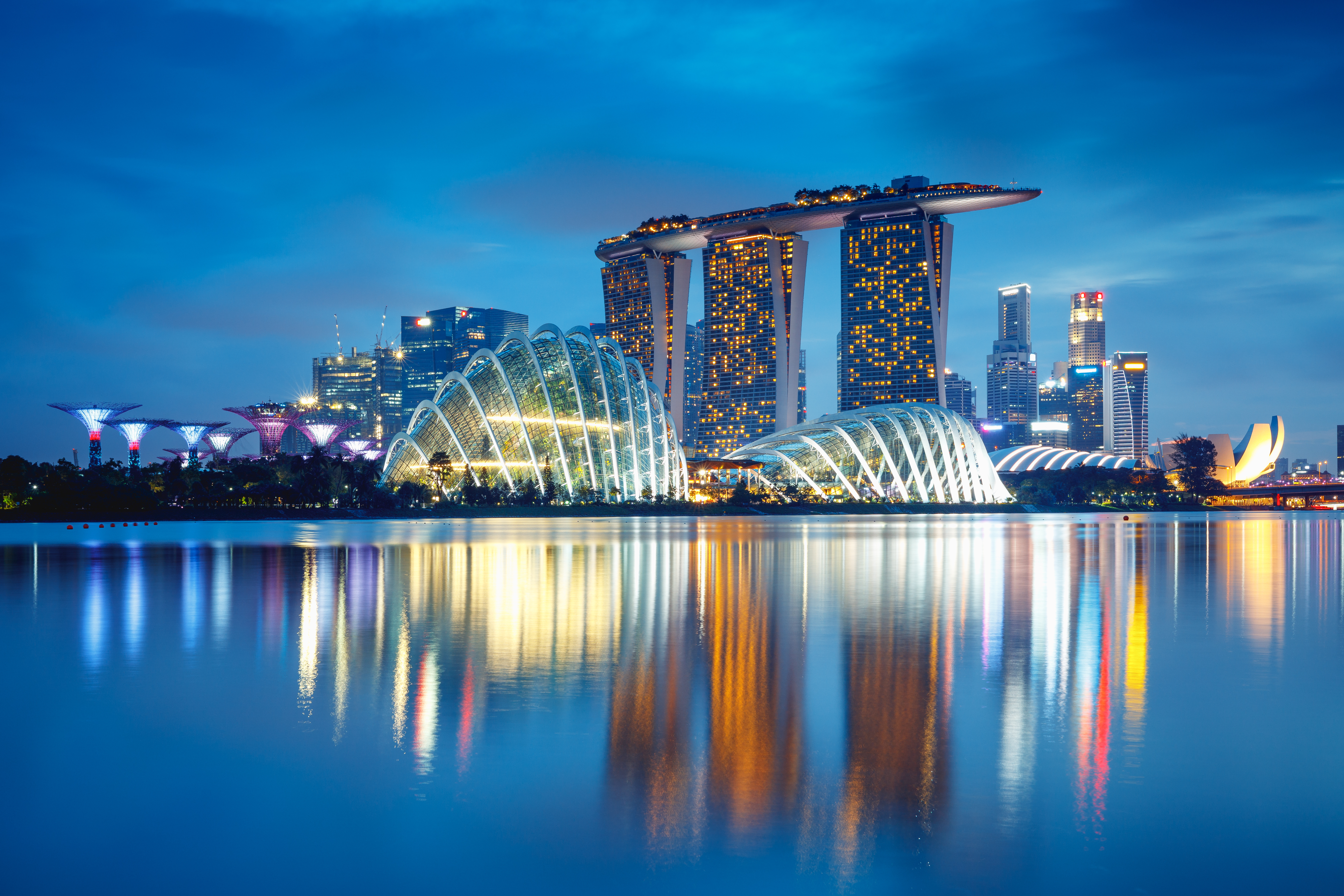
Singapore as a safe destination: the reality
The numbers look good, but it’s Singapore’s approach to creating a just and orderly society that make it stand out.
Laws in Singapore are rigid. Behaviors that are part of everyday life in New York City, like jaywalking, are verboten in Singapore, and come with large fines attached.
Dangerous behaviors that tourists occasionally indulge in, like public drunkenness and recreational drug use, have even harsher consequences.
The bottom line is that keeping the peace is very important in Singapore, and authorities will go the distance to make sure the peace is kept.
Alcohol
If you’re headed to Singapore to drink, you should reconsider.
ForeverVacation notes that, “The legal drinking age is 18 years (make sure you bring identification or you could be refused service) and drinking alcohol in public places is prohibited between 10:30 p.m. and 7 a.m.”
Furthermore, according to the State Department, “The areas of Geylang and Little India are designated as ‘Liquor Control Zones’ where drinking in public places is prohibited all weekend, on public holidays, and on the eve of public holidays.”
If you’re caught drinking outside of those hours, expect a fine of up to SG$1,000.
It’s not only lack of I.D. that could cause you not to be served. Servers in Singapore regularly refuse service to people who in their opinion have had too much to drink.
Drugs
The same caveats apply to drugs.
The authorities can authorize luggage searches and blood and urine tests of suspected drug users, and a positive test can result in detention and/or denial of entry.
Other violations
As mentioned earlier, engaging in behaviors commonplace in the U.S. can result in your arrest. In addition to jaywalking, they include:
- Spitting
- Chewing gum
- Littering
- Smoking
- Catcalling
- Taking unauthorized pictures of women
- Watching a public demonstration
Read the State Department’s traveler’s profile of Singapore before you go so you’re not caught by surprise.
The upside of strict enforcement
The upside of Singapore’s rigid approach to do’s and don’ts is that many of the issues other countries face are non-issues in Singapore.
Petty theft, for instance.
As Claire from the travel blog Claire’s Footsteps writes, “Petty theft can happen, but even that is uncommon when compared to large Western cities like London, Paris or Barcelona – just use your common sense and you should be able to avoid this.”
Other areas where Singapore is relatively worry-free are:
Neighborhoods
There are really no neighborhoods in Singapore that would be considered off-limits.
Transportation
Transportation in Singapore is uniformly safe. It’s even not terrible to drive around, as long as you remember they drive on the left.
Scams
Scams are few and far between.
Healthcare
Singapore’s healthcare system is world-class – but it’s expensive and providers demand payment up-front. For that reason, travel insurance from Berkshire Hathaway Travel Protection is recommended.
Food and water safety
The hawker centers make consumption of street food as safe as possible. If the chili crab gives you traveler’s belly, that’s on you.
You can also drink the tap water.
Cultural considerations
Modest dress is recommended, especially when visiting mosques, but it’s not a long-sleeves/long-pants all-the-time thing. Singapore is in the tropics, after all.
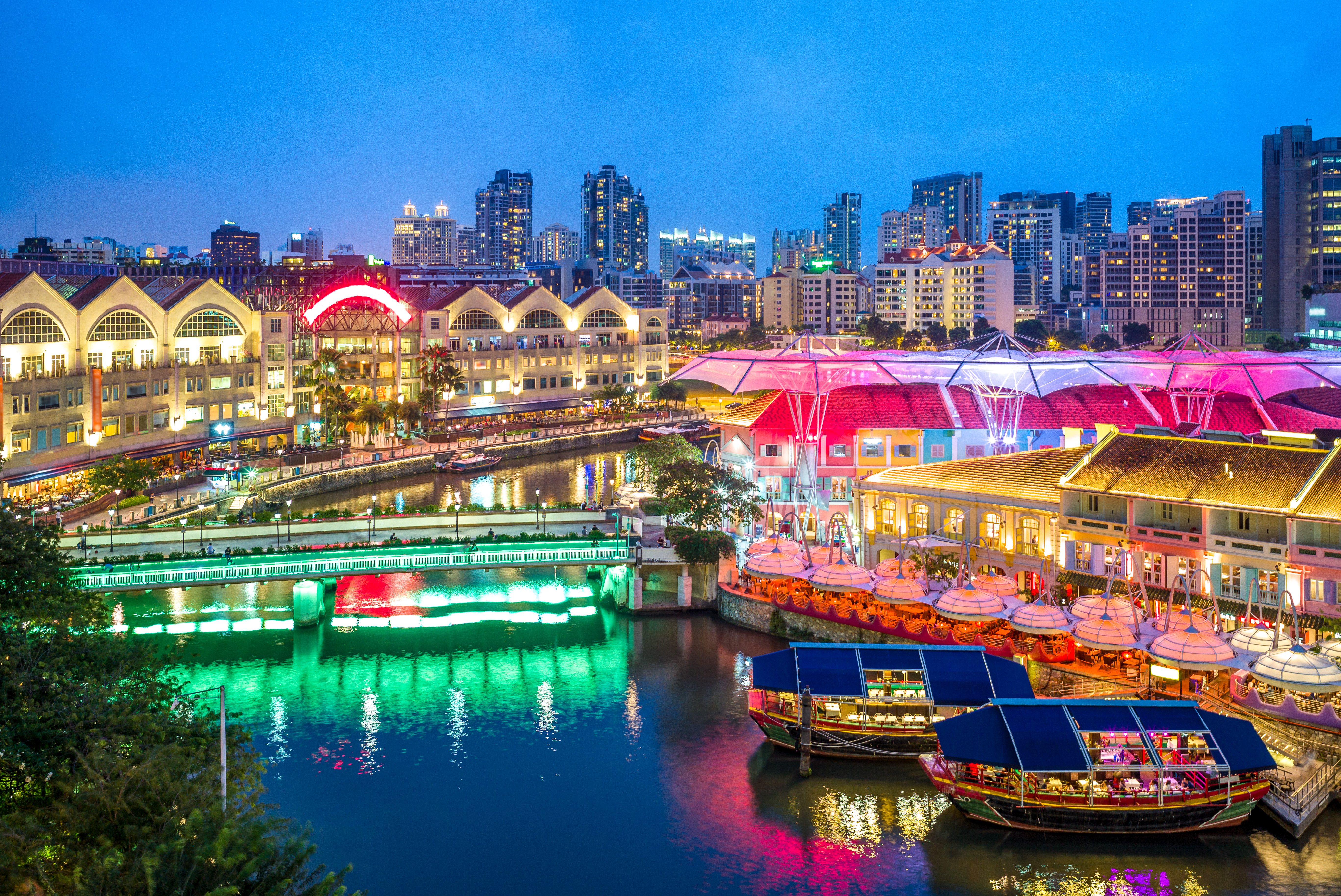
Singapore for solo female travelers
Unlike many Asian countries, Singapore is a place where solo female travelers can feel safe.
“I’ve visited Singapore as a solo female traveller twice and have felt completely safe, 100% of the time,” Claire wrote.
"I didn’t experience any catcalling or unwanted attention from men on the street,” she added. “Everyone who I had a conversation with was respectful, friendly and polite.”
The fact that there are typically strict Singaporean laws protecting women from unwanted attention certainly makes a difference; still, the peace of mind those laws provide is unusual and important.
Singapore for LGBTQ+ travelers
Singapore has the reputation of being unwelcoming to LGBTQ+ travelers. That’s not untrue, but it’s also not exactly true. The truth is this: Singapore does not sanction gay marriage – which isn’t an issue unless you’re a resident of Singapore.
Singapore has also outlawed “acts of indecency” between two men but doesn’t enforce the law. It also won’t issue dependent passes to lesbian and gay partners, even if they’ve been legally married in another country.
On the ground, according to Claire, “some attitudes in Singapore can still be conservative, but the younger generation is much more inclusive and open, and there are plenty of LGBTQ+-friendly areas throughout the city.”
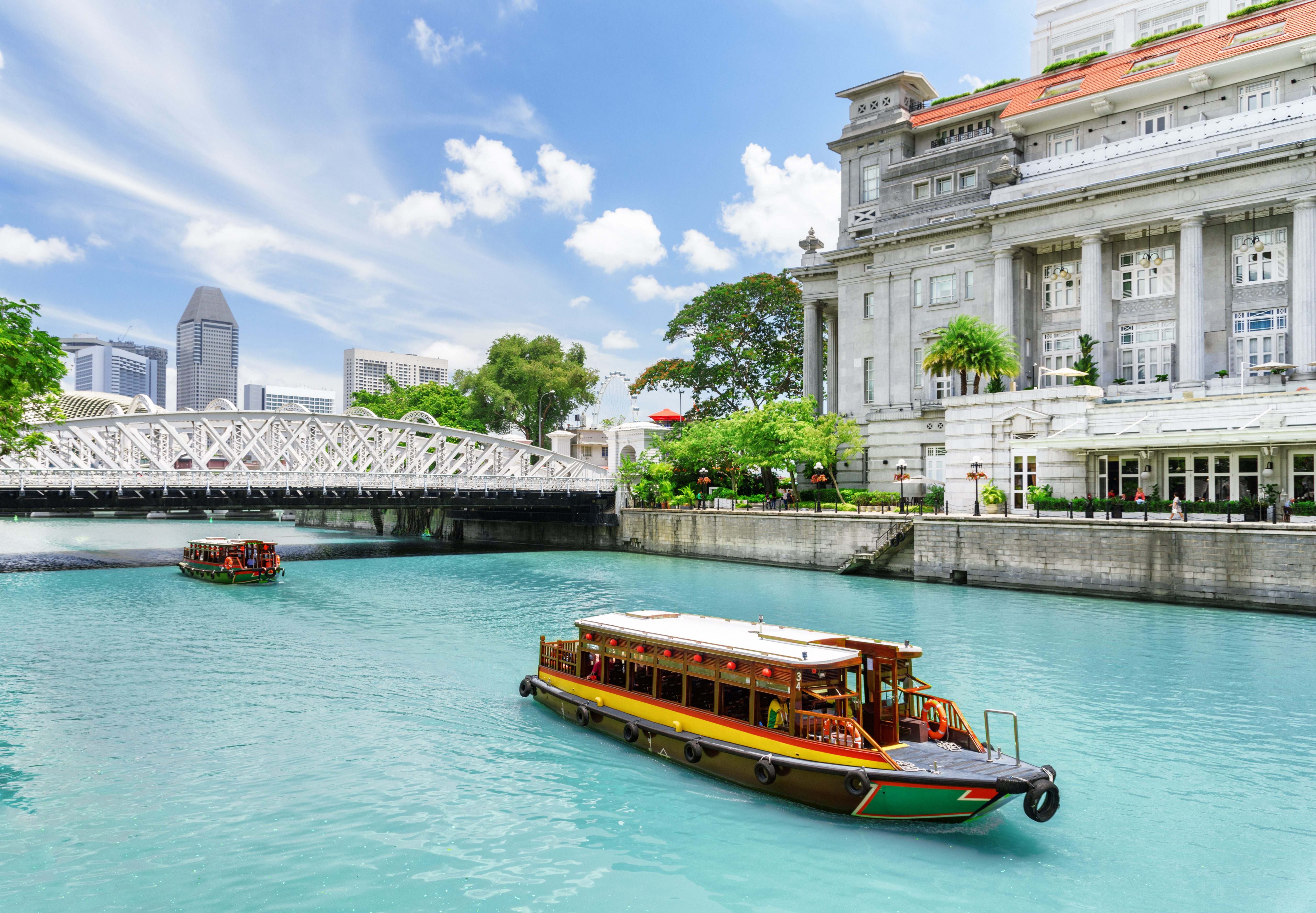
Final caveats
Singapore is hot and humid, so dress for the heat and drink plenty of fluids.
Disease
Because it’s a tropical country, Singapore has its share of tropical diseases – malaria, dengue and chikungunya, primarily.
According to the State Department, “Use the [CDC]-recommended mosquito repellents and sleep under insecticide-impregnated mosquito nets. Chemoprophylaxis is recommended for all travelers, even for short stays. “
Natural disasters
Unlike its neighbors, Singapore is largely immune from:
- Typhoons
- Earthquakes
- Volcanic eruptions
However, disasters in Malaysia or Indonesia can affect conditions in Singapore, so keep an eye on regional weather issues and disasters.
If you’re a law-follower, you’ll have a great time in Singapore; if you’re not, it’s probably not for you. Either way, grab some travel insurance and you’ll be ready to follow in the footsteps of the crazy-rich Asians.
Just keep the chewing gum in your pocket.
Questions About Travel Insurance?
Check out our online guide, "What Is Travel Insurance All About?" We've provided in-depth answers to all your travel insurance questions, starting with the basics.